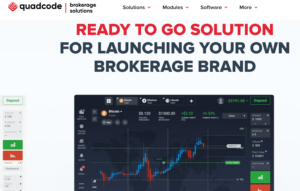FCA to implement planned increase in Financial Ombudsman Service award limit
The award limit increase from £150,000 to £350,000 would apply to complaints referred to the service from April 1, 2019.

The UK Financial Conduct Authority (FCA) has earlier today published its Policy Statement about its plans to increase the award limit for the Financial Ombudsman Service (FOS).
The regulator has considered the feedback to its consultation paper on the planned hike, and further developed its understanding of the potential impact on certain sectors, particularly the financial advice market. However, this has not changed the FCA view that an award limit increase is necessary. The regulator is, therefore, implementing its proposals as consulted on.
The FCA received 130 responses to its consultation paper. The focus of feedback was, as expected, the proposal for a £350,000 award limit. The proposal to ensure the award limits keep pace with inflation proved relatively uncontentious.
Most responses on the £350,000 limit proposals came from personal investment firms (PIFs), particularly small independent financial advisers (IFAs), and insurers providing professional indemnity insurance (PII) to these firms. These respondents did not support any increase to the ombudsman service’s limit, mainly due to the potential impact on the PII market.
General insurers – the other main respondent group – tended to challenge the FCA on whether such a large, single increase was necessary. They also questioned the ability of the ombudsman service to deal with more complex cases. There was qualified support from the banking sector for a £350,000 limit. Parliamentarians, and organisations representing consumers and non-financial small businesses advocated a higher limit than £350,000.
In the face of the negative feedback from certain sectors, the FCA is pressing ahead with the planned increase in the award limit.
Therefore, on April 1, 2019, the ombudsman service’s £150,000 award limit will change to:
- £350,000 for complaints about acts or omissions by firms on or after April 1, 2019;
- £160,000 for complaints about acts or omissions by firms before April 1, 2019, and which are referred to the ombudsman service after that date.
Additionally, from April 1, 2020 onwards, both award limits will be automatically adjusted on April 1stto ensure they keep pace with inflation, as measured by the Consumer Prices Index (CPI).
For any complaints referred to the ombudsman service before April 1, 2019 the limit will remain at £150,000.
The ombudsman service’s award limit sets the maximum amount of financial compensation that the ombudsman service can require firms to pay when it upholds complaints against them. There is no limit on the amount the service can recommend and firms can choose to pay the difference.
Consultation Paper (CP) 18/31, published in October 2018, was the first review of the ombudsman service’s award limit since 2010, when the FCA increased the original limit from £100,000 to £150,000. This increase, which came into force in 2012, was based on general price inflation to ensure consumer protection was maintained in real terms.
In CP 18/31, the FCA said it considered the £150,000 award limit to be inadequate in light of the data on the number and value of ‘high value complaints’ handled by the ombudsman service.
The FCA defined high value complaints as complaints where the service decided that fair compensation exceeded the award limit. According to the regulator, there could be around 2,000 such complaints each year. The FCA estimated the shortfall in redress due to the award limit could be as high as £113 million each year.









